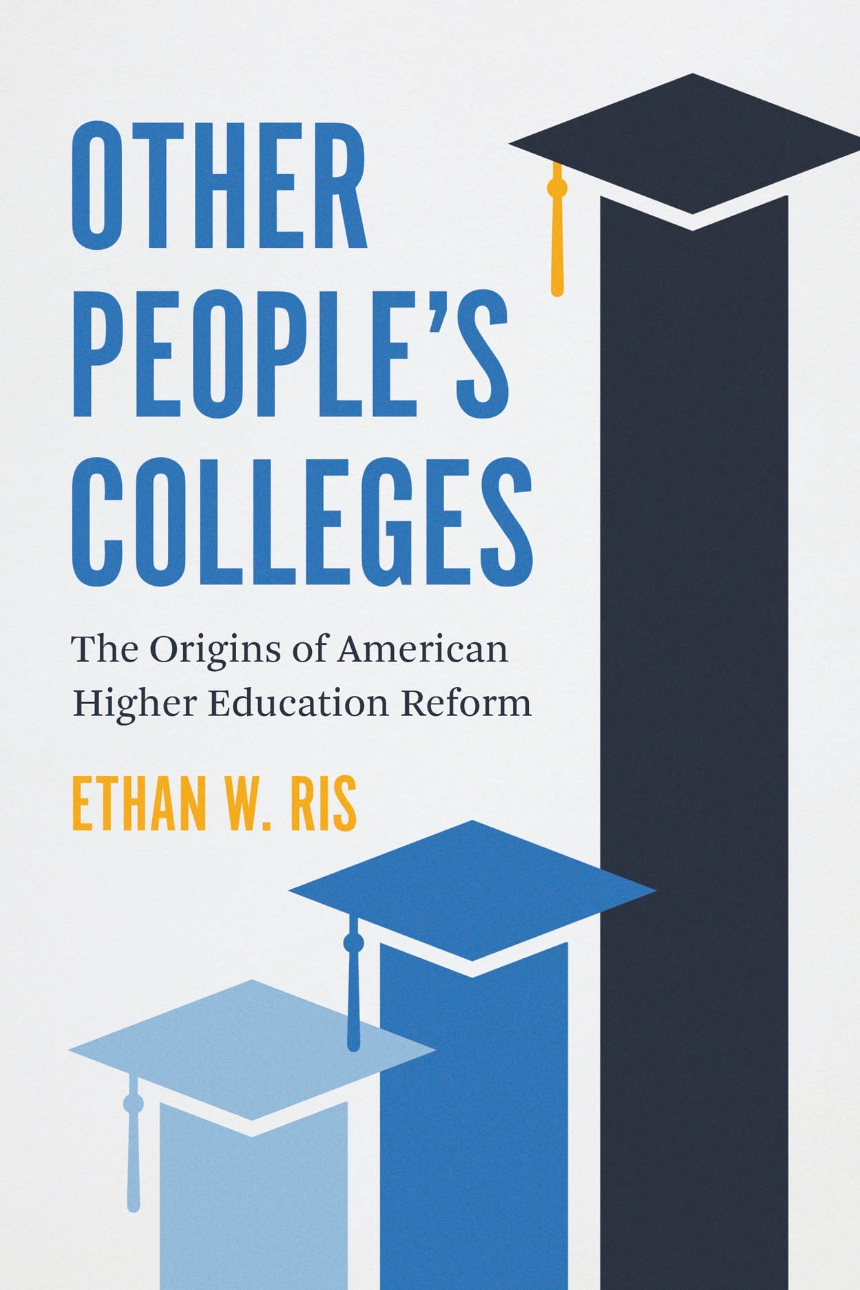Other People’s Colleges
The Origins of American Higher Education Reform
9780226820224
9780226820194
9780226820231
9780226831626
Other People’s Colleges
The Origins of American Higher Education Reform
An illuminating history of the reform agenda in higher education.
For well over one hundred years, people have been attempting to make American colleges and universities more efficient and more accountable. Indeed, Ethan Ris argues in Other People’s Colleges, the reform impulse is baked into American higher education, the result of generations of elite reformers who have called for sweeping changes in the sector and raised existential questions about its sustainability. When that reform is beneficial, offering major rewards for minor changes, colleges and universities know how to assimilate it. When it is hostile, attacking autonomy or values, they know how to resist it. The result is a sector that has learned to accept top-down reform as part of its existence.
In the early twentieth century, the “academic engineers,” a cadre of elite, external reformers from foundations, businesses, and government, worked to reshape and reorganize the vast base of the higher education pyramid. Their reform efforts were largely directed at the lower tiers of higher education, but those efforts fell short, despite the wealth and power of their backers, leaving a legacy of successful resistance that affects every college and university in the United States. Today, another coalition of business leaders, philanthropists, and politicians is again demanding efficiency, accountability, and utility from American higher education. But, as Ris argues, top-down design is not destiny. Drawing on extensive and original archival research, Other People’s Colleges offers an account of higher education that sheds light on today’s reform agenda.
For well over one hundred years, people have been attempting to make American colleges and universities more efficient and more accountable. Indeed, Ethan Ris argues in Other People’s Colleges, the reform impulse is baked into American higher education, the result of generations of elite reformers who have called for sweeping changes in the sector and raised existential questions about its sustainability. When that reform is beneficial, offering major rewards for minor changes, colleges and universities know how to assimilate it. When it is hostile, attacking autonomy or values, they know how to resist it. The result is a sector that has learned to accept top-down reform as part of its existence.
In the early twentieth century, the “academic engineers,” a cadre of elite, external reformers from foundations, businesses, and government, worked to reshape and reorganize the vast base of the higher education pyramid. Their reform efforts were largely directed at the lower tiers of higher education, but those efforts fell short, despite the wealth and power of their backers, leaving a legacy of successful resistance that affects every college and university in the United States. Today, another coalition of business leaders, philanthropists, and politicians is again demanding efficiency, accountability, and utility from American higher education. But, as Ris argues, top-down design is not destiny. Drawing on extensive and original archival research, Other People’s Colleges offers an account of higher education that sheds light on today’s reform agenda.
368 pages | 6 x 9 | © 2022
Education: Higher Education, History of Education
History: American History
Reviews
Table of Contents
Introduction
Part One: The Ethos of Reform
1 The Academic Engineers
2 Toward System
Part Two: The Program of Reform
3 The Higher Education Pyramid
4 “The Practical Life”
5 Separate and Unequal
Part Three: The Decline of Reform
6 The Counter-Reformation
7 Organized Resistance
8 A New Consensus and a New Ethos
Conclusion: Four Legacies
Acknowledgments
Appendix
Notes
Index
Part One: The Ethos of Reform
1 The Academic Engineers
2 Toward System
Part Two: The Program of Reform
3 The Higher Education Pyramid
4 “The Practical Life”
5 Separate and Unequal
Part Three: The Decline of Reform
6 The Counter-Reformation
7 Organized Resistance
8 A New Consensus and a New Ethos
Conclusion: Four Legacies
Acknowledgments
Appendix
Notes
Index
Awards
History of Education Society: History of Education Society Eisenmann Prize
Won
